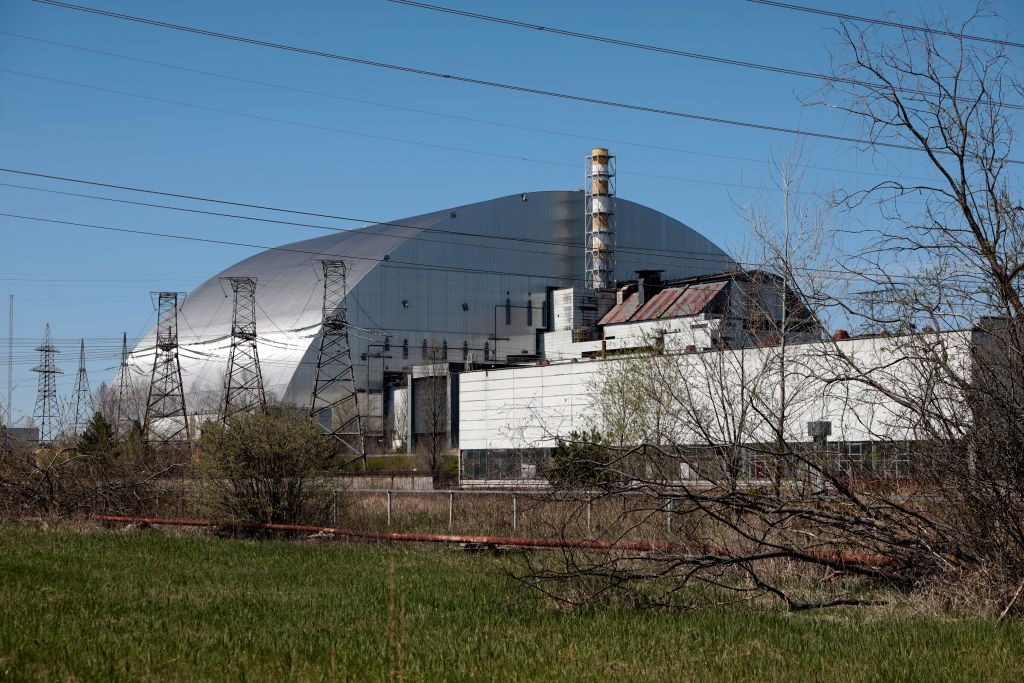Zelensky reminds world of Russian nuclear threat on Chornobyl anniversary

President Volodymyr Zelensky has used the anniversary of the Chornobyl disaster on April 26 to highlight the continuing threat Russia poses while the Zaporizhzhia Nuclear Power Plant is "held hostage" by Moscow's forces.
The Zaporizhzhia plant – the largest nuclear plant in Europe – has been under Russian occupation since March 2022. The Chornobyl plant was also occupied by Moscow's forces for 35 days at the start of Russia's full-scale invasion.
Throughout its occupation, the Zaporizhzhia nuclear plant has been repeatedly disconnected from the Ukrainian power grid due to Russian attacks on the country's energy infrastructure.
In a post on social media, Zelensky said the Chornobyl disaster "showed the world how quickly deadly threats can appear," adding: "Radiation does not recognize borders and does not distinguish national flags."
"For 785 days, the Zaporizhia nuclear power plant, the largest in Europe, has been held hostage by Russian terrorists," he said.
"And it is the duty of the whole world to put pressure on Russia so that the nuclear power plant is released and returned to the full control of Ukraine and that all nuclear facilities in Ukraine are protected from Russian strikes."
Radiation sees no borders or national flags. The Chornobyl disaster demonstrated how rapidly deadly threats can emerge. Tens of thousands of people mitigated the Chornobyl disaster at the cost of their own health and lives, eliminating its terrible consequences in 1986 and the… pic.twitter.com/ezclAdytag
— Volodymyr Zelenskyy / Володимир Зеленський (@ZelenskyyUa) April 26, 2024
The Chornobyl nuclear accident occurred on April 26, 1986, when one of the plant’s nuclear reactors exploded during a planned test.
The explosion spewed nuclear material across Europe and heavily contaminated a 150,000-square-kilometer area of land covering Ukraine, Belarus, and Russia.
A massive rescue and clean-up operation narrowly averted an even bigger cataclysm, but the accident remains the most devastating nuclear disaster in history and played a significant role in the collapse of the Soviet Union.
While the official death toll stands at just 31, the World Health Organisation (WHO) estimates that approximately 4,000 people have died since the disaster due to acute radiation symptoms, thyroid cancer, or radiation-induced leukemia.
Over 55,400 square kilometers, or 9% of Ukraine’s territory, is contaminated because of the accident.
"We remember the strength and dedication of people who saved lives in 1986. We appreciate everyone who is helping to protect lives now," Zelensky said.














